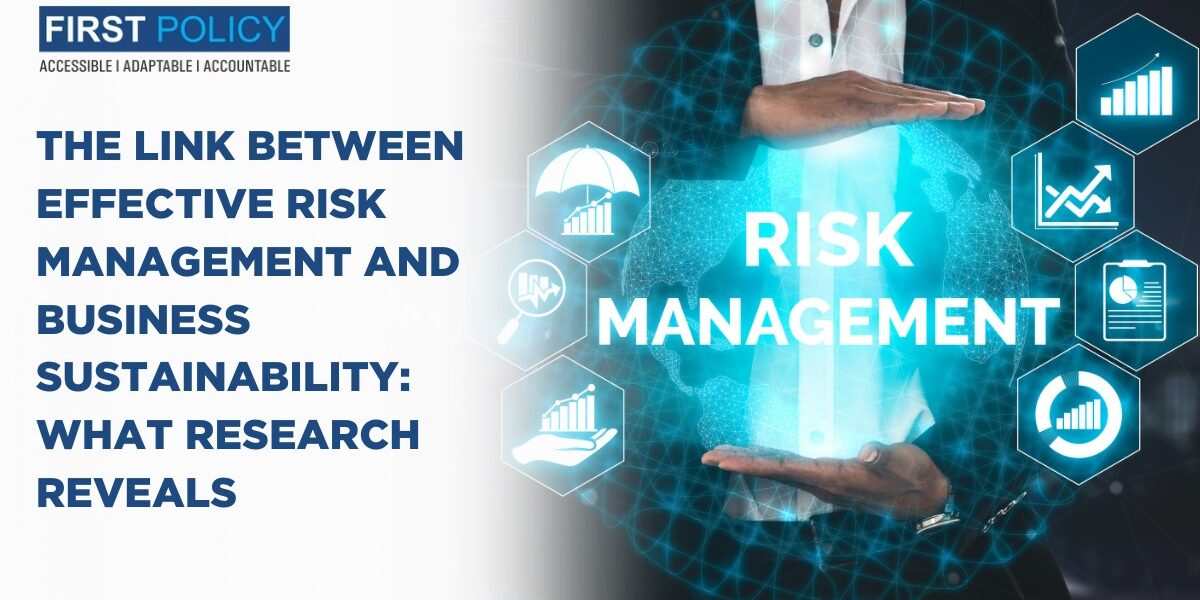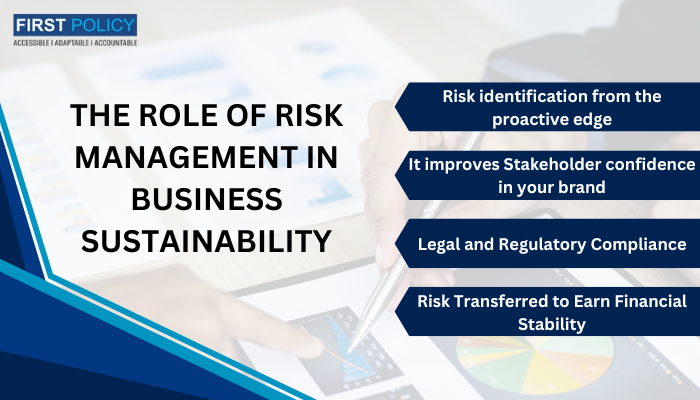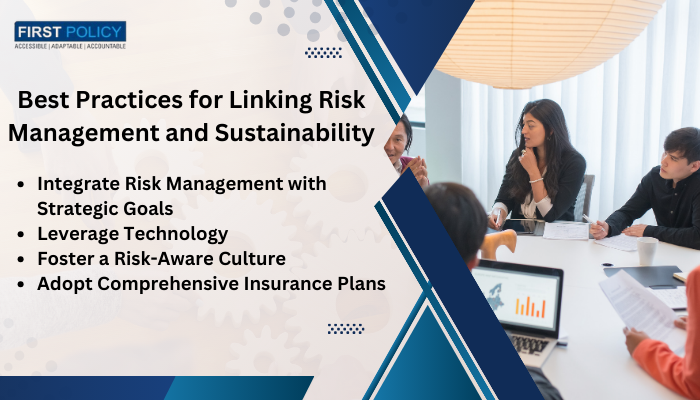
The Link Between Effective Risk Management and Business Sustainability: What Research Reveals
Today’s economy is fast, interconnected, and business requires proactive handling of any number of challenges. As globalization, technological changes as well as emerging regulatory frameworks speeds up, companies may need to strike a balance between profit and resilience. Risk management solutions come in to save or guarantee survival, and go further for long term sustainability.
Over and over, research has found a powerful correlation between how a company’s controls and risk management makes money; in other words, makes it successful. Organizations can improve their ability to withstand shocks while taking full advantage of opportunities, by identifying, assessing and mitigating risks. In this article, we take a deep dive into the most recent research and observations, and uncover how smart business risk management can help solidify sustainable business routine.
Understanding Business Sustainability
Business sustainability is about how an organization can operate long term sustainably in that regard, that is considering the economic, the environmental and the social. A few key words for you — it’s about balancing making a profit with having a responsibility.
Sustainable companies are more knowledgeable and ready for changes in the market conditions, as well as meeting regulations and fulfilling stakeholders expectation. But this balance could only be accomplished with a strong framework where risk management solutions are desperately needed.

The Role of Risk Management in Business Sustainability
1. Risk identification from the proactive edge
However, the research shows that organizations have perfected corporate risk management techniques that allow them to proactively flag risks that may affect their operations. For one example, Deloitte discovered that 76 percent of the companies that had a structured risk management framework were better positioned to deal with supply chain disruptions in the pandemic.
These risks span across categories such as:
- Operational Risks: Equipment failure or inefficient process disruptions.
- Financial Risks: Currency fluctuations; credit defaults; market volatility.
- Environmental and Social Risks: Climate, resource scarcity, and societal expectations.
When these challenges are anticipated, businesses can correct themselves and remain resilient and not disrupted.
2. It improves Stakeholder confidence in your brand
Risk management is ever more scrutinized by investors, customers and employees. Organizations can use effective risk management solutions to demonstrate how committed they are to sustainability, and in this respect, it will lead to trust for stakeholders.
For example, to provide corporate health insurance for employees is not only dictated by industry regulations but also an extremely strategic investment which boosts morale and productivity in the labor force. The socially responsible companies are those who offer insurance and other benefits to employees, making them perceive the same as a positive undertaking, thus strengthening their reputation as well as their brand loyalty.
3. Legal and Regulatory Compliance
A very real risk to any business is non compliance with regulations. In this regard, risk management frameworks are highlighted as helping businesses deal with the complex legal quicksand.
For example, Environmental, Social, and Governance (ESG) metrics have become de rigueur in the risk management of corporate today. These metrics can then be used by organizations who employ corporate risk management tools to integrate these into their operations, delivering both compliance and sustainability.
4. Risk Transferred to Earn Financial Stability
Risk transfer is basically the role of insurance that protects businesses from any unforeseen financial loss. From accounts receivables through trade credit insurance to property insurance to cover damages, businesses depend on these solutions to make risk management a manageable process.
Furthermore, if corporate health insurance is available, employees continue working during health crises, thus cutting down on downtime and corporate hemorrhage. Most importantly, these measures directly support operational and financial sustainability and allow companies to keep pace with the fast changing environment.
Research Findings on the Link Between Risk Management and Sustainability
Several studies highlight the tangible benefits of robust risk management:
Improved Financial Performance:
According to research published in the Journal of Risk Management, firms with advanced risk management practices wrote 25 percent more than their peers. With these companies being more efficient at reallocation of resources during crises, optimizing losses and capitalizing on growth opportunities.
Enhanced Crisis Preparedness:
The COVID-19 pandemic was the litmus test of business endurance. A PwC poll showed companies with effective integrated corporate risk management fared better through the disturbance, experiencing 40% less operations disruptions.
Better Decision-Making:
The McKinsey report says that incorporating risk assessments in the company’s strategic planning processes makes it able to make more informed decision, thus reducing uncertainty and providing a sustainable growth.
Employee Retention and Satisfaction:
Catering to comprehensive health benefits like corporate health insurance according to the major needs of the employees, not only makes people satisfied but also cuts down turnover. It has a direct impact on long term productivity and cost efficiency, which are two things that are vital to the sustainability.

Best Practices for Linking Risk Management and Sustainability
To maximize the synergy between risk management and sustainability, organizations should:
Integrate Risk Management with Strategic Goals: Align your corporate risk management framework with broader business mission so that it becomes a smooth execution solution.
Leverage Technology: Predict ahead of the risks, using predictive analytics, AI and IoT.
Foster a Risk-Aware Culture: Employees and stakeholders need to be educated about the relevance of risk management and motivate with their proactive relation.
Adopt Comprehensive Insurance Plans: Make sure to include coverage of corporate health insurance, as well as property insurance and liability insurance.
The Way Forward
In today’s world with more and more uncertain things happening, the importance of good risk management cannot be emphasized enough. Using robust risk management solutions organizations can not only prevent threats but also bring about new opportunities for growth.
Also, driving corporate risk management as the fundamental pillar of sustainability sustains in the long term. Persons who bring into play these practices in companies are likely to be in a position to indict to a fair gaming between economic success and environmental and social responsibility.
Whether through strategic planning, compliance, or the adoption of corporate health insurance for workforce well-being, the message is clear: We don’t tell our clients “Avoid Risk”; we tell them: “How do we build a sustainable future?”
In general, research unequivocally indicates that link between effective risk management and business sustainability is deep and strong. Investing in these practices not only safeguards an organization’s present, but it will also protect a brighter, more sustainable future.





